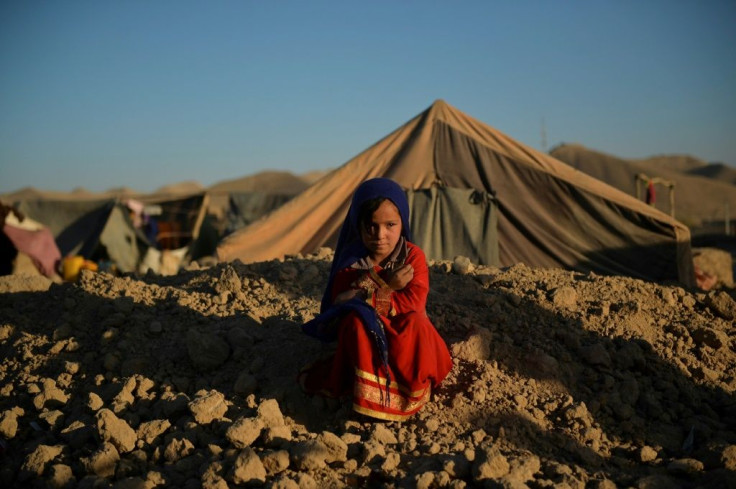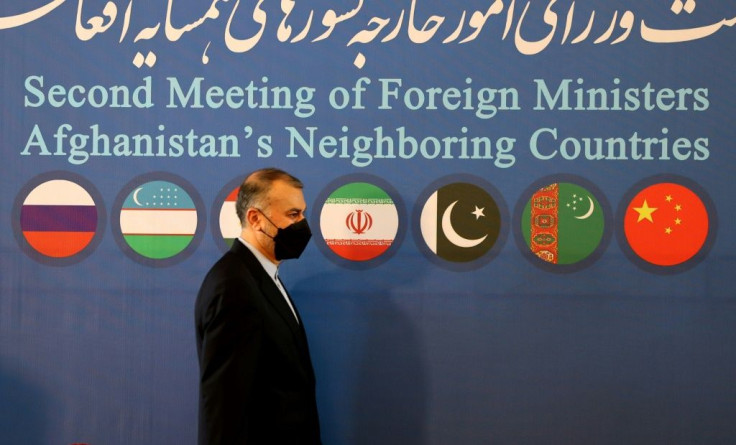Iran Urges Taliban To Adopt 'Friendly' Approach At Regional Meet
Iran's foreign minister called on the Taliban to adopt a "friendly" approach, during a meeting Wednesday of Afghanistan's six neighbouring countries to determine a "roadmap" following the Islamists' takeover of Kabul.
The meeting, two months after the Islamist extremists swept to power in Kabul, brought the foreign ministers of Pakistan, Uzbekistan, Tajikistan and Turkmenistan to Tehran, while their Chinese and Russian counterparts joined via video-link.
"It is essential that the Taliban adopts a friendly approach towards its neighbours and takes the necessary measures to assure them that there is no threat to their neighbours from Afghanistan," Iran's Foreign Minister Hossein Amir-Abdollahian said.
"I hope that we can paint a clearer picture of the realities of Afghanistan, and the expectations of the neighbouring countries most affected by the developments in that country, and develop a roadmap."

Afghanistan is on the cusp of a humanitarian crisis in which more than half the country could face "acute" food shortages this winter, UN agencies warned on Monday.
Addressing the meeting by video link, UN Secretary-General Antonio Guterres said "We must find ways to avoid a total meltdown of the Afghan economy... and to help people survive".
Iran's First Vice-President Mohammad Mokhber warned of the impact surrounding nations faced from the situation in Afghanistan.
"If no solution is found as soon as possible to control and manage the economic crisis in Afghanistan, the crisis will certainly move beyond the borders of Afghanistan and affect its neighbours and the world," he said.

Iran, which shares a 900-kilometre (560-mile) border with Afghanistan, did not recognise the Taliban during their 1996 to 2001 stint in power.
But Tehran has appeared to soften its tough stance in recent times in the name of pragmatism.
"The Islamic Republic of Iran insists on the establishment of an inclusive government with the presence and effective participation of all ethnic and religious groups in Afghanistan, based on inter-Afghan dialogue without the intervention of foreign actors," Amir-Abdollahian said.
Guterres in his address pointed to the need for inclusivity "and representative government, that respects international humanitarian law".
The Taliban formed an all-male cabinet made up entirely of members of the group, and almost exclusively of ethnic Pashtuns. It has severely restricted women's rights to work and study, prompting widespread international condemnation.
"The Taliban must play an undeniable role in assuring security, countering terrorism and respecting the rights of diverse groups, including women," Amir-Abdollahian said.
He added the Taliban must work on "providing the basic needs of Afghan citizens, putting an end to abuse of ethnic and religious minorities, eradicating the causes that led to the displacement of part of the population and respecting international law".
© Copyright AFP {{Year}}. All rights reserved.





















